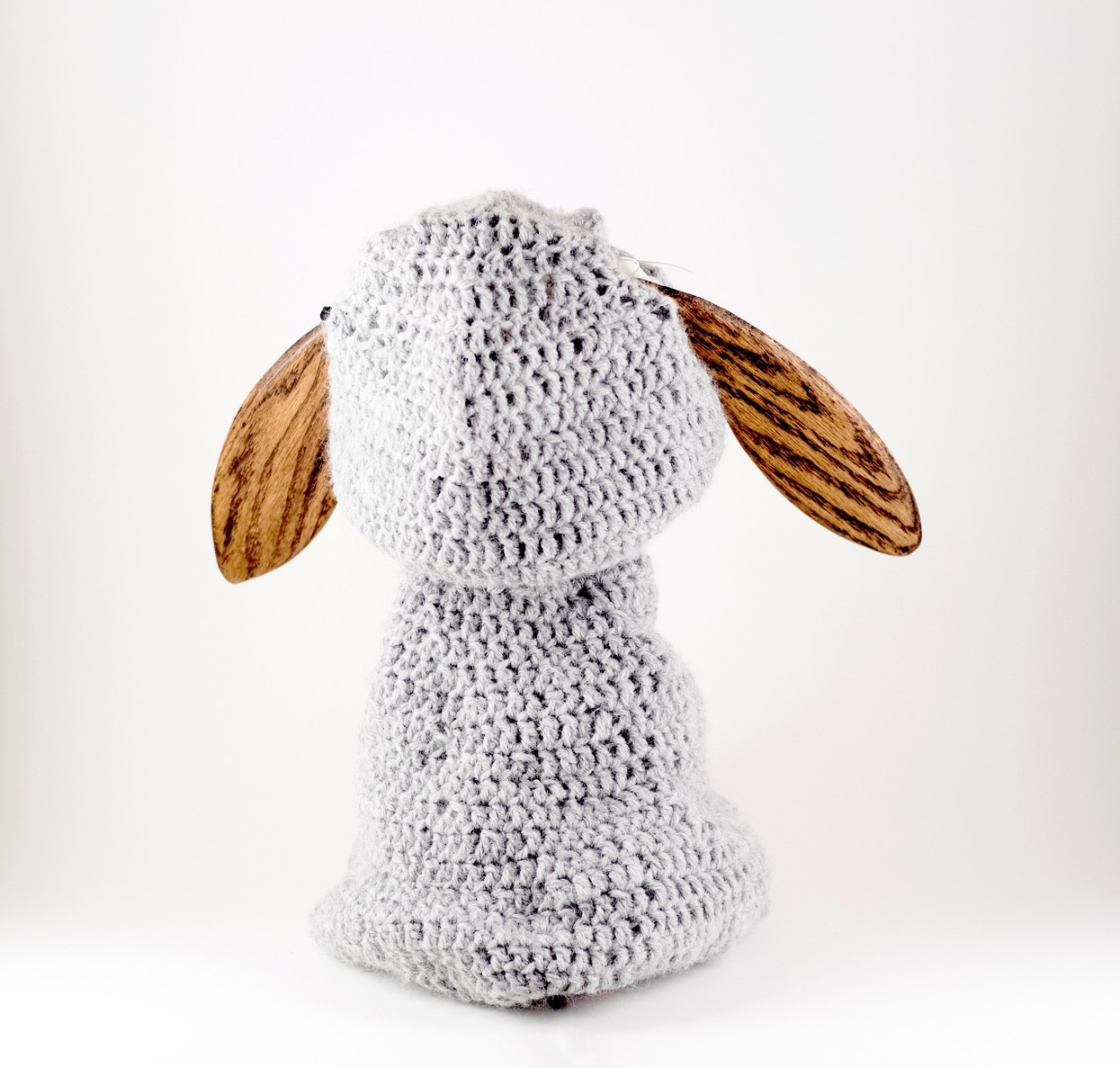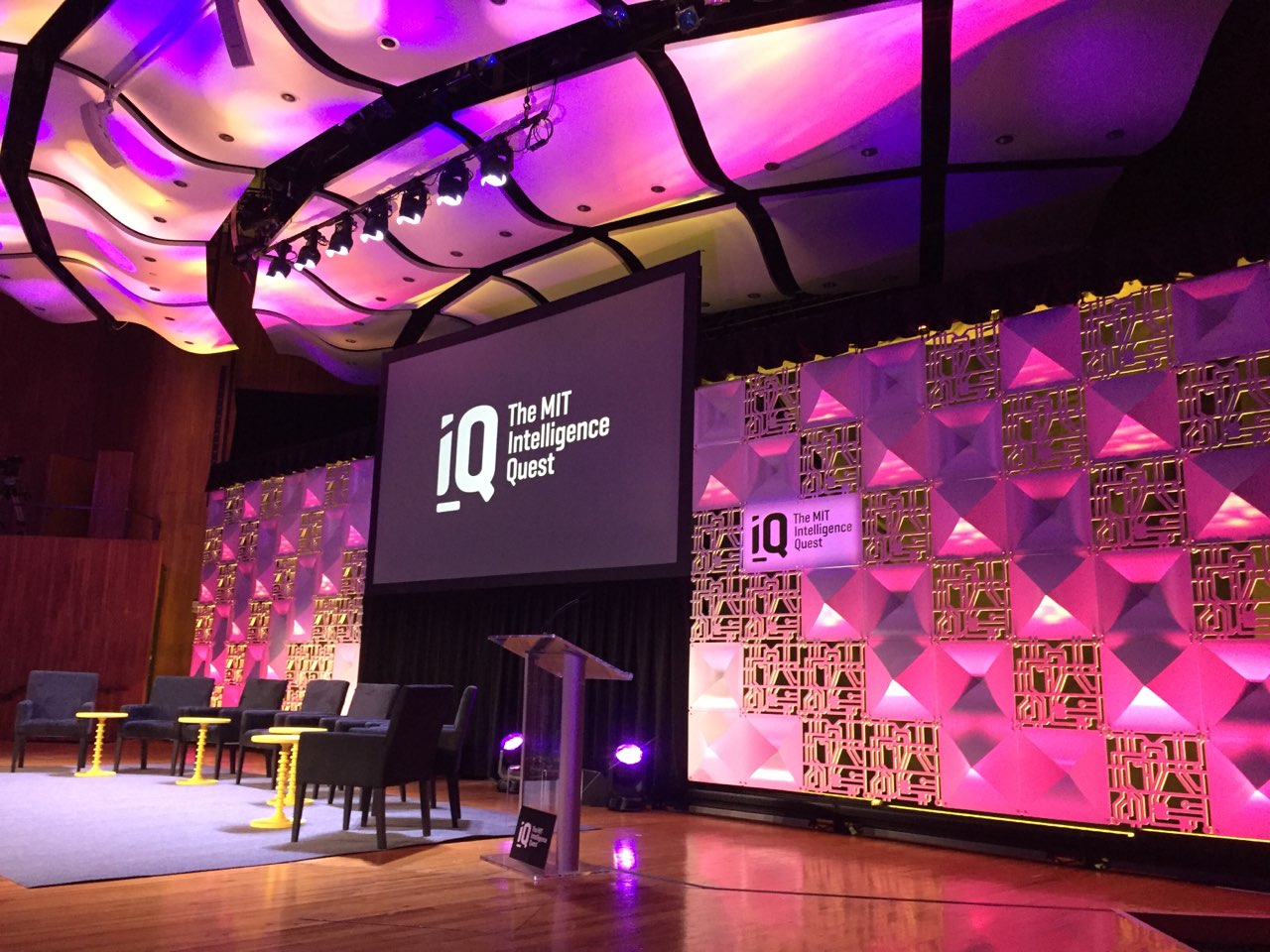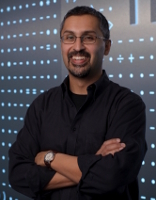Making the Move to Mobile
Transience, Replication, and the Paradox of Social Robotics

with Guy Hoffman
Robotics Researcher, Cornell University
An Art, Technology, and Culture Colloquium, co-sponsored by the Center for New Music and Audio Technologies and CITRIS People and Robots (CPAR), presented with Berkeley Arts + Design as part of Arts + Design Mondays.
As we continue to develop social robots designed for connectedness, we struggle with paradoxes related to authenticity, transience, and replication. In this talk, I will attempt to link together 15 years of experience designing social robots with 100-year-old texts on transience, replication, and the fear of dying. Can there be meaningful relationships with robots who do not suffer natural decay? What would our families look like if we all choose to buy identical robotic family members? Could hand-crafted robotics offer a relief from the mass-replication of the robot’s physical body and thus also from the mass-customization of social experiences?
About Guy Hoffman
Dr. Guy Hoffman is an Assistant Professor and the Mills Family Faculty Fellow in the Sibley School of Mechanical and Aerospace Engineering at Cornell University. Prior to that he was an Assistant Professor at IDC Herzliya and co-director of the IDC Media Innovation Lab. Hoffman holds a Ph.D from MIT in the field of human-robot interaction. He heads the Human-Robot Collaboration and Companionship (HRC2) group, studying the algorithms, interaction schema, and designs enabling close interactions between people and personal robots in the workplace and at home. Among others, Hoffman developed the world’s first human-robot joint theater performance, and the first real-time improvising human-robot Jazz duet. His research papers won several top academic awards, including Best Paper awards at robotics conferences in 2004, 2006, 2008, 2010, 2013, 2015, 2018, and 2019. His TEDx talk is one of the most viewed online talks on robotics, watched more than 3 million times.
About the Art, Technology, and Culture Colloquium
Founded by Prof. Ken Goldberg in 1997, the ATC lecture series is an internationally respected forum for creative ideas. Always free of charge and open to the public, the series is coordinated by the Berkeley Center for New Media and has presented over 200 leading artists, writers, and critical thinkers who question assumptions and push boundaries at the forefront of art, technology, and culture including: Vito Acconci, Laurie Anderson, Sophie Calle, Bruno Latour, Maya Lin, Doug Aitken, Pierre Huyghe, Miranda July, Billy Kluver, David Byrne, Gary Hill, and Charles Ray.
Fall 2019 – Spring 2020 Series Theme: Robo-Exoticism
In 1920, Karl Capek coined the term “robot” in a play about mechanical workers organizing a rebellion to defeat their human overlords. A century later, increasing popularism, inequality, and xenophobia require us to reconsider our assumptions about labor, trade, political stability, and community. At the same time, advances in artificial intelligence and robotics, fueled by corporations and venture capital, challenge our assumptions about the distinctions between humans and machines. To explore potential linkages between these trends, “Robo-Exoticism” characterizes a range of human responses to AI and robots that exaggerate both their negative and positive attributes and reinforce fears, fantasies, and stereotypes.
Robo-Exoticism Calendar
09/09/19 Robots Are Creatures, Not Things
Madeline Gannon, Artist / Roboticist, Pittsburgh, PA
Co-sponsored by the Jacobs Institute for Design Innovation and CITRIS People and Robots (CPAR)
09/23/19 The Copper in my Cooch and Other Technologies
Marisa Morán Jahn, Artist, Cambridge, MA and New York, NY
Co-sponsored by the Wiesenfeld Visiting Artist Lecture Series and the Jacobs Institute for Design Innovation
10/21/19 Non-Human Art
Leonel Moura, Artist, Lisbon
Co-sponsored by the Department of Spanish & Portuguese and CITRIS People and Robots (CPAR)
11/4/19 Transience, Replication, and the Paradox of Social Robotics
Guy Hoffman, Robotics Researcher, Cornell University
Co-sponsored by the Center for New Music and Audio Technologies and CITRIS People and Robots (CPAR)
01/27/20 Dancing with Robots: Expressivity in Natural and Artificial Systems
Amy LaViers, Robotics, Automation, and Dance (RAD) Lab
Co-sponsored by the Department of Theater, Dance, and Performance Studies and CITRIS People and Robots (CPAR)
02/24/20 In Search for My Robot: Emergent Media, Racialized Gender, and Creativity
Margaret Rhee, Assistant Professor, SUNY Buffalo; Visiting Scholar, NYU
Co-sponsored by the Department of Ethnic Studies and the Department of Comparative Literature
03/30/20 The Right to Be Creative
Margarita Kuleva, National Research University Higher School of Economics, Moscow
Invisible Russia: Participatory Cultures, Their Practices and Values
Natalia Samutina, National Research University Higher School of Economics, Moscow
Co-sponsored by the Department of Slavic Languages and Literature and Department of the History of Art and the Arts Research Center
04/06/20 Artist Talk
William Pope.L, Artist
Presented by the Department of Art Practice
04/13/20 Teaching Machines to Draw
Tom White, New Zealand
Co-sponsored by Autolab and CITRIS People and Robots (CPAR)
For more information:
Contact: info.bcnm [at] berkeley.edu, 510-495-3505
ATC Director: Ken Goldberg
BCNM Director: Nicholas de Monchaux
Arts + Design Director: Shannon Jackson
BCNM Liaisons: Lara Wolfe, Laurie Macfee
ATC Highlight Video from F10-S11 Season (2 mins)
http://j.mp/atc-highlights-hd
ATC Audio-Video Archive on Brewster Kahle’s Internet Archive:
http://tinyurl.com/atc-internet-archive
ATC on Facebook:
https://www.facebook.com/cal-atc
ATC on Twitter:
https://www.twitter.com/cal_atc
BionicOpter is the biggest flying robotic insect – Festo in Guinness World Records 2020
US Digital Automates Production Process Using Robot and In-House Engineering Talent
#296: Robust Robotics and the Quest for Intelligence, with Nicholas Roy

In this episode Lilly Clark interviews Nicholas Roy, Professor of Aeronautics and Astronautics at MIT, about the Quest for Intelligence initiative and his research in robust robotics. Roy discusses how cognitive science pushes artificial intelligence, further pushing the capabilities of engineering tools and services, and speaks about the importance of explainable and ethical AI. He explains the challenges of capturing context and semantics in useful models of a system, and designing unmanned aerial vehicles and robots which interact with humans.
Nicholas Roy

Nicholas Roy is the Bisplinghoff Professor of Aeronautics and Astronautics at MIT, and leads the Robust Robotics Group in the Computer Science and Artificial Intelligence Laboratory. He received a BS and MS from McGill University, and a PhD from Carnegie Mellon University. His research interests span robotics, machine learning, planning and reasoning, and human-computer interaction.
Links